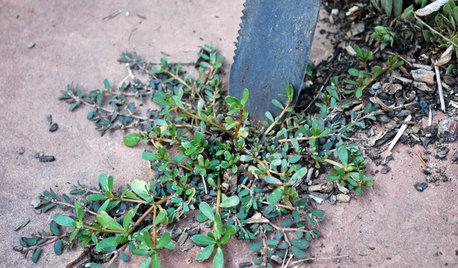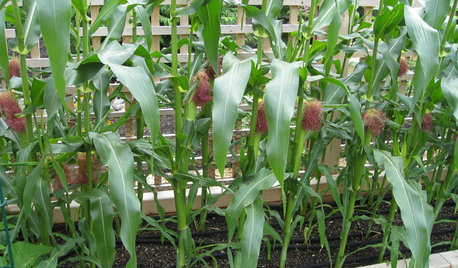Roundup Strategies
16 years ago
Related Stories

SELLING YOUR HOUSEYour Home-Selling Guide for a Faster and Better Sale
Learn staging and curb appeal tricks, how to get the best photos and more in this roundup focusing on high-impact house-selling strategies
Full Story
EVENTSDesign Calendar: April 19–May 10, 2012
Catch a fascinating flick, be especially kind to the planet or choose something else from our curated roundup of 5 upcoming design events
Full Story
LIFE10 Ways to Love Your Home More
Your home can be your happy place even without a major overhaul. This roundup of guides will show you how
Full Story
ARCHITECTURE9 Townhouses from Coast to Coast
Get inspired by urban dwelling space-saving strategies — plus how to make a stairwell kid-friendly
Full Story
FEEL-GOOD HOME8 Tips for Harmony in the Kitchen
Frustrated by the arguments that arise over kitchen duties? Check out these coping strategies
Full Story
EDIBLE GARDENSNatural Ways to Get Rid of Weeds in Your Garden
Use these techniques to help prevent the spread of weeds and to learn about your soil
Full Story
GARDENING GUIDES5 Ways to Naturally Win the Weed War
Show irksome weeds no mercy with these tricks for combating them sans chemicals
Full Story
EARTH DAY5 Ideas for a More Earth-Friendly Garden
Consider increasing the size of garden beds, filtering rainwater and using plants to reduce energy use
Full Story
SUMMER FRUITS AND VEGETABLESHow to Grow Your Own Fresh, Sweet Corn
Here's how to plant and care for your own mini cornfield
Full Story
LANDSCAPE DESIGNLandscaping Tricks to Manage Stormwater Runoff
Help rainwater absorb slowly back into the earth with paving grids, gravel beds and other porous systems
Full StorySponsored
Central Ohio's Trusted Home Remodeler Specializing in Kitchens & Baths



vera_eastern_wa
just1morehosta
Related Discussions
Weeds becoming immune to RoundUp, RU-ready crops
Q
Using Roundup near conifers
Q
Need an overall 'natives' strategy (Michigan)
Q
Is Roundup vs Envoy; which is safer (herbicides)
Q
tansy_moonOriginal Author
just1morehosta
vera_eastern_wa
just1morehosta
tansy_moonOriginal Author
vera_eastern_wa
proudgm_03
farfaraway
just1morehosta
farfaraway
just1morehosta
clumsygrdner
farfaraway
tansy_moonOriginal Author
dirtbert
greengardener07
farfaraway
just1morehosta
farfaraway
tansy_moonOriginal Author
farfaraway
tansy_moonOriginal Author
farfaraway
vera_eastern_wa
just1morehosta
busylizzy
ellenr22 - NJ - Zone 6b/7a
tansy_moonOriginal Author
ellenr22 - NJ - Zone 6b/7a
ilene_in_neok
farfaraway
tansy_moonOriginal Author
just1morehosta
tansy_moonOriginal Author
farfaraway
kqcrna
tansy_moonOriginal Author
farfaraway